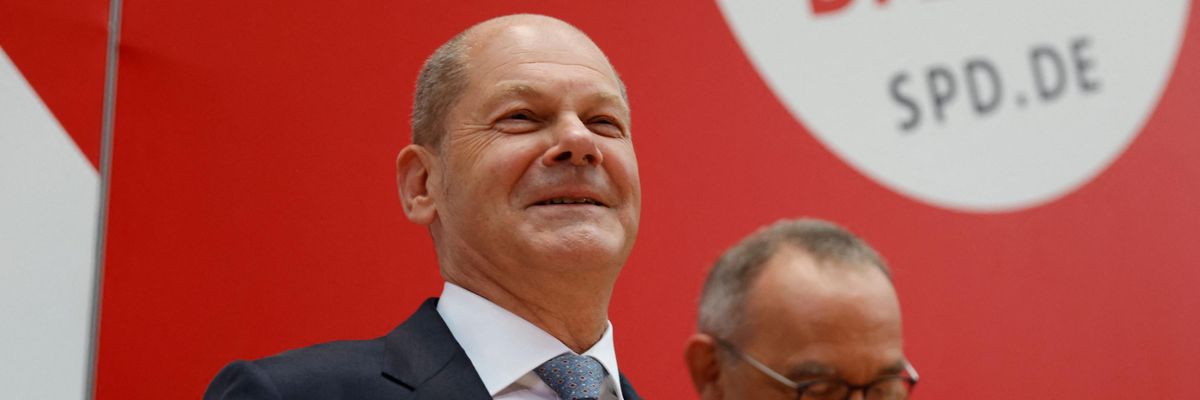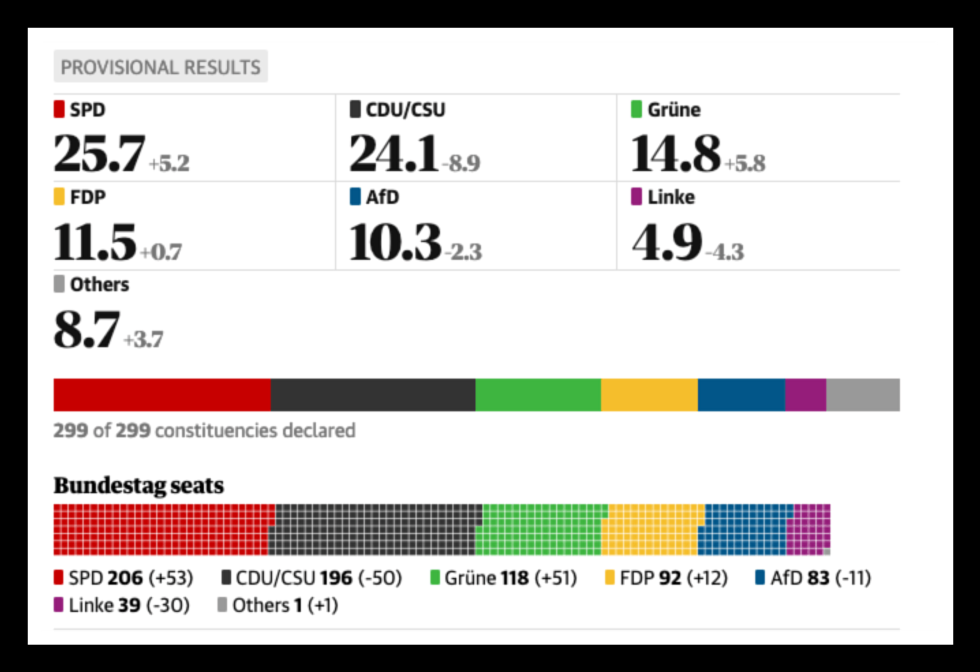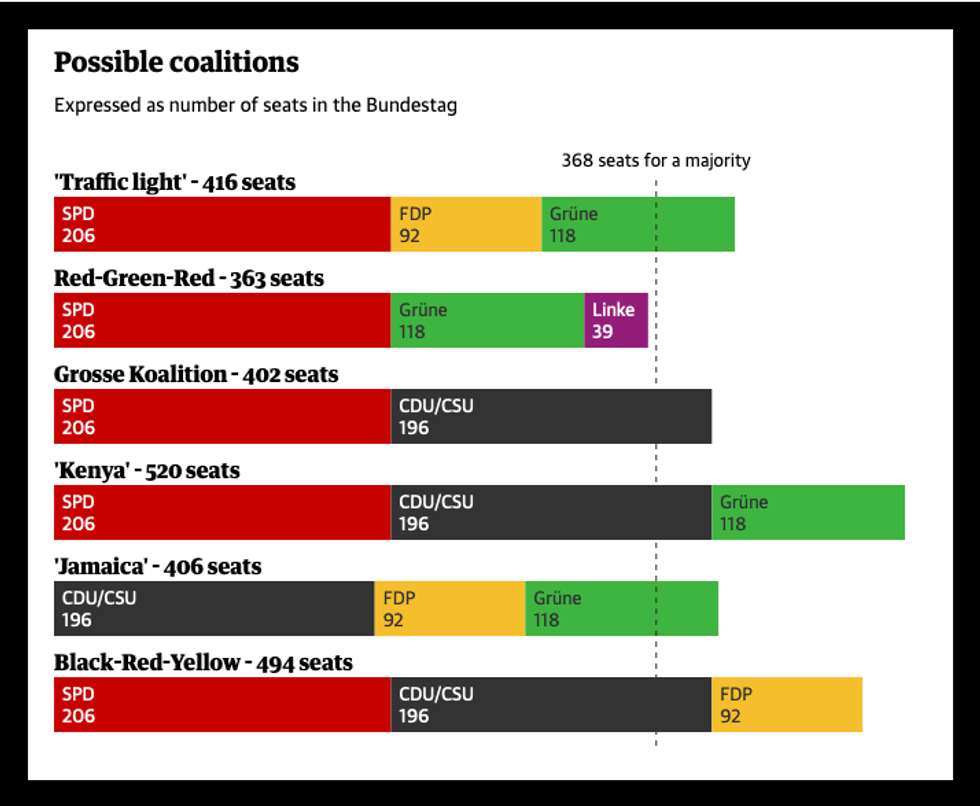The center-left Social Democrats took the most parliamentary seats in German elections Sunday as the center-right bloc led by longtime Chancellor Angela Merkel lost ground and the ascendant Greens--energized by the youth vote and with a focus on the climate emergency--picked up a promising number of seats with an eye towards being a crucial member of a yet-to-be-determined coalition government.
"The climate crisis is the leading issue of the next government, and that is for us the basis for any talks," said Annalena Baerbock, leader of the Greens.
With Merkel heading out the door after 16 years in power, the Social Democrats (SPD) led by Olaf Scholz, currently the nation's Finance Minister, took the largest share of seats with 25.7 percent of the total, according to preliminary results. Merkel's governing Union bloc (CDU-CSU), comprised of her Christian Democrats and the Christian Social Union, fell into second by securing 24.1 percent of the vote--the poorest showing for the Bavarian bloc in seven decades and an exiting rebuke of Merkel's hard-driving austerity and divisiveness that has been the centerpiece of her time leading Europe's economic powerhouse.
By securing 14.8 percent of the vote, the Greens in Germany are now poised to become the key party in the forming of any coalition government. Placing fourth, the pro-business Free Democrats (FDP) secured approximately 11.5 percent of the vote and could--paired with Schotz's SPD and the Greens led by Annalena Baerbock--form the basis of the most likely coalition to lead the 735-seat Bundestag.
"Voters have clearly spoken," a victorious Scholz told reporters Monday morning from party headquarters. "They have said who should build the next government by strengthening three parties, the Social Democratic Party, the Greens and the Free Democrats. Consequently, that is the clear mandate that voters of this country have given, that these three parties should create the next government."
With final results yet to come and the prospect of coalition talks that could take months, Merkel will remain as Chancellor in a caretaker role until a new government is formed.
"What we can clearly see right now is that we have two potential kingmakers in this party landscape, one is the Green Party, and the other are the liberal Free Democrats," explained Melinda Crane, chief political correspondent for Deutsche Welle. "Those are the two parties that are essentially now at the disposition of the bigger parties as the talk about trying to form a government."
"The SPD and the Greens have a lot of commonality," added Crane. "But there are quite a few big gaps between the Greens and the liberal Free Democrats. The one thing to keep your eye on now in the coming days is how do they position themselves vis a vis each other?"
In his remarks, Schotz said "the mandate for us is to do what the people want," which was "to lead a good government that will set the course for the decade ahead, to bring more respect into society, to modernize our industrial sector and to halt the man-made climate change."
According to the New York Times:
The progressive, environmentalist Greens appeared to make significant gains since the 2017 election but seemed to fall short of having a viable shot at the chancellery. That positions the Greens, as well as the business-friendly Free Democrats, to join the next government. They will play a key role in deciding what the next German government could look like, depending on which of the larger parties they would like to govern with.
On the outer edge of the political spectrum, support for the far-right Alternative for Germany, or AfD, appeared roughly unchanged, while the Left party appeared to be hovering on the 5 percent threshold needed to win seats in Parliament.
For the Greens, Baerbock admitted her party's third-place showing was not quite as strong as they had hoped, but said it was clear that the increased number of seats won proves that both young people and those concerned about the planetary climate crisis want their voices heard.
"The climate crisis," Baerbock said Monday, "is the leading issue of the next government, and that is for us the basis for any talks" about a coalition government.






